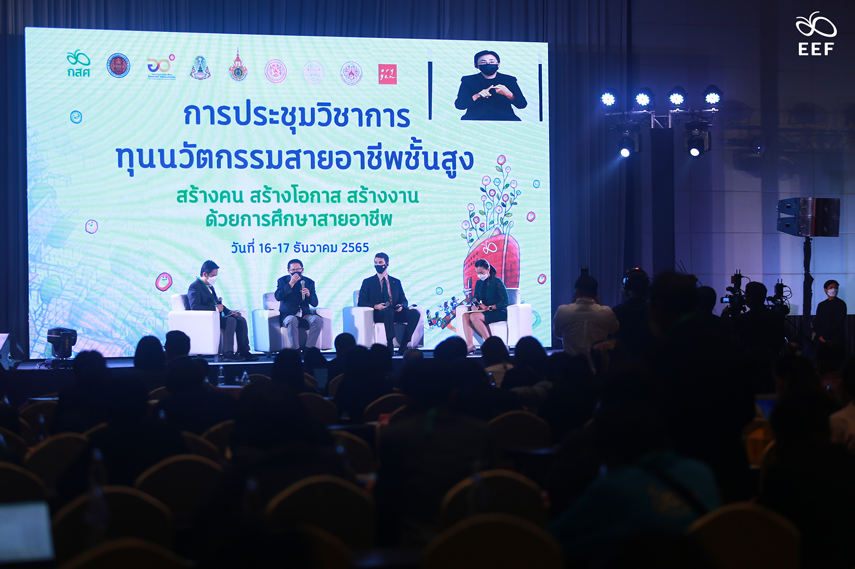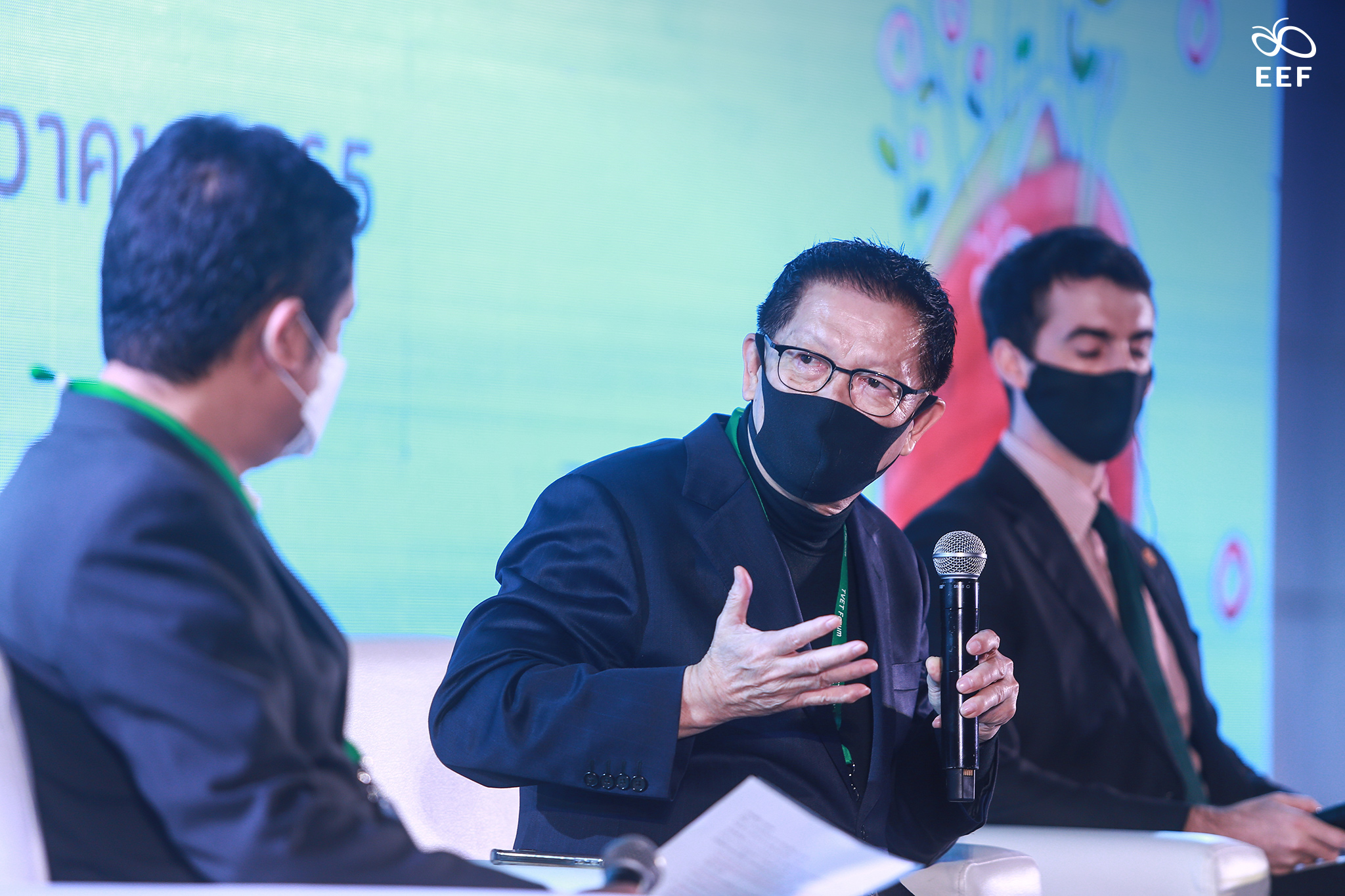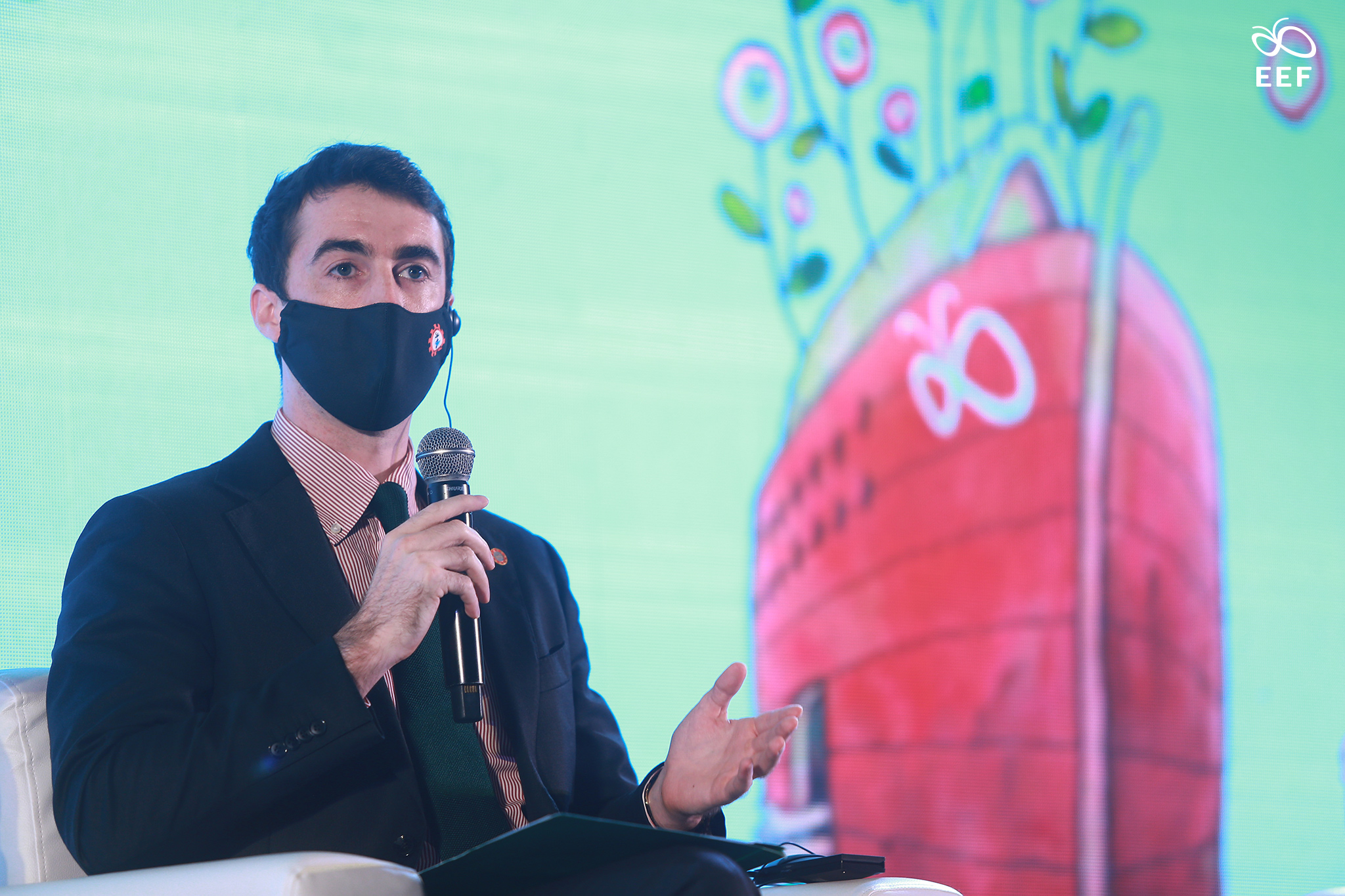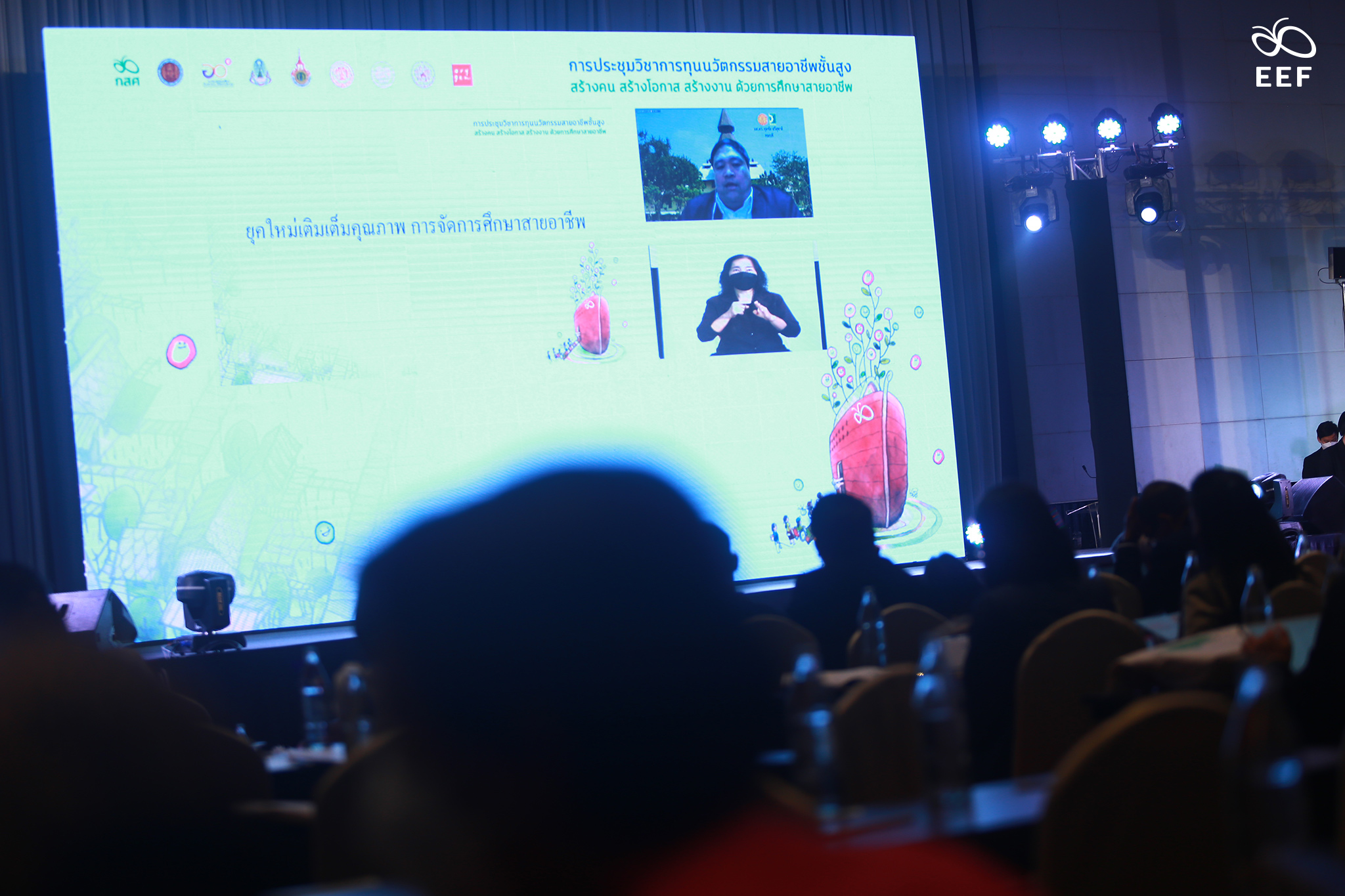
Global education is currently facing challenges from economic transformation, climate change, globalization, digitalization, and the pandemic, which are worrisome for the existing education system, especially vocational education. While it is widely acknowledged that technical education is critical to a country’s development, the current system fails to keep up with rapidly changing technology, resulting in a skill mismatch between workers and the needs of the future workforce.
Dr. Sampan Silapanad, Vice President, Western Digital Corporation Thailand Co., Ltd., discussed this issue in the Thailand context as he urged the sector to create a more “efficient” system. According to Dr. Sampan, 3 important challenges for Thailand’s TVET include digital disruption, budget allocation, and partnership.
 Dr. Sampan Silapanad, Vice President, Western Digital Corporation Thailand Co., Ltd.,
Dr. Sampan Silapanad, Vice President, Western Digital Corporation Thailand Co., Ltd.,
He stated that due to digital disruption, space for “average” workers will keep shrinking. Workers will need to reskill and upskill more frequently than ever before. In a lifetime, workers will change, therefore, seven to eight times, compared to about three times in the past. Dr. Sampan therefore encouraged institutions to focus on the “input”—equipping students with digital literacy and other skills that contribute to the needs of the job market.
Furthermore, while a large amount of money has been channeled into the education sector, much of it goes to top universities instead of vocational schools, which are the backbone of economic development. Budget allocation needs to be redesigned. And lastly, he suggested that creating partnerships is just inviting stakeholders to seminars but actually working together to achieve the goals.
 Ansgar Schaefer, Integrated Expert TVET,
Ansgar Schaefer, Integrated Expert TVET,
Southeast Asian Ministers of Education Organization Secretariat (SEAMEO Secretariat)
Ansgar Schaefer, Integrated Expert TVET, Southeast Asian Ministers of Education Organization Secretariat (SEAMEO Secretariat), continued the discussion from a regional and global point of view. Similar to the Thailand context, Ansgar stated that there have been many megatrends influencing education and the future of work, but the common element of these disruptions is digital transformation. This transformation will change the existing system. Jobs will be lost, but new jobs will be created, and these new positions will definitely require a different set of skills.
Instead of attempting to train skilled individuals to keep up with ever-changing technology, Ansgar suggested that institutes be flexible and provide teachers and students with skills that will allow them to navigate such an environment on their own. Teachers should be able to strengthen foundational skills such as communication, digital competency, and social skills and be able to transfer these skills to students. On top of that, we also need to provide them with industry-wide knowledge.
Apart from investing in human resources, which he thinks is key, Ansgar also highlighted partnerships among stakeholders. It is important, he noted, that the education sector creates lasting partnerships with companies because the industry sector knows best what skills are needed, not to mention that they are better equipped and have better access to resources and technology.
 Dr. Supachai Srisuchart, Dean, Faculty of Economics, Thammasat University
Dr. Supachai Srisuchart, Dean, Faculty of Economics, Thammasat University
The last speaker was Assistant Professor Dr. Supachai Srisuchart, Dean, Faculty of Economics, Thammasat University, who joined the session online. Dr. Supachai’s discussion focused on how we can include and retain students in the educational system.
Dr. Supachai noted that scholarships are one of the innovations that help draw disadvantaged students into the education system. It creates opportunities and reduces financial inequality. There are many types of scholarships, for example, scholarships for poor students, scholarships that support specific education, and scholarships for socially and culturally disadvantaged students. However, it is important to understand the target of the scholarship in order to create equal access to education.
 Building Better TVET System: A New Era Session
Building Better TVET System: A New Era Session
For instance, the Progresa Program in Mexico and Brazil is a conditional cash transfer program that provides cash transfers to poor rural households on the condition that the recipients must attend school and maintain good grades. Dr. Supachai also noted that the scholarship is also designed to empower women in the family.
After students enter the education system, it is critical for stakeholders to collaborate in order to prepare students for long-term careers after graduation.
Source:

